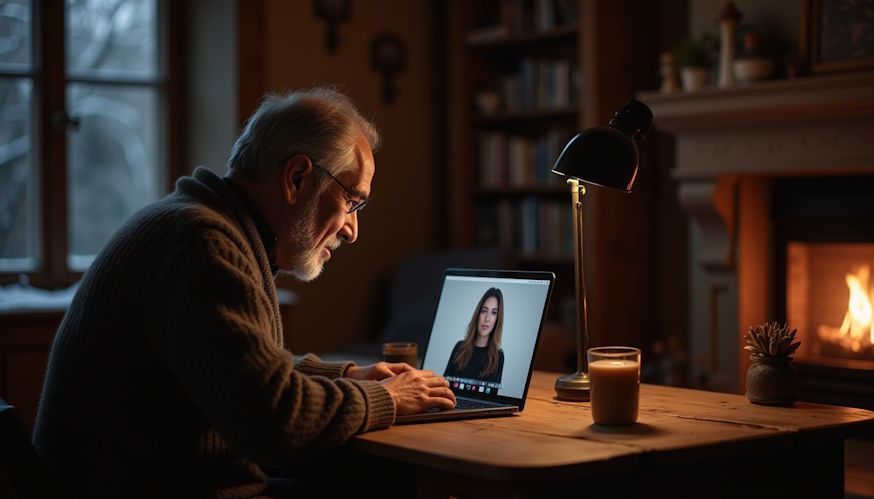April 23, 2025
How Can Hypnosis Help You Stop Overeating? (Article 6 of 12) If you’ve ever finished a meal and thought, “Why did I eat so much?”—you’re not alone. In fact, most of us have trained ourselves to eat until the plate is clean, not until our body says we’re satisfied. It’s a habit rooted in years of social cues, childhood rules, and convenience-driven eating. The good news? Habits like that live in the subconscious. And that’s exactly where hypnosis does its best work. Why Portion Control Isn’t About Willpower The pressure to “just eat less” is everywhere. But the problem isn’t knowledge—it’s that the mental cues telling you to stop eating have been muted over time. Hypnosis helps turn the volume back up on your internal signals. In a session, your hypnotherapist can guide your subconscious to reconnect with natural hunger and fullness. This isn’t about restricting food. It’s about giving your mind permission to notice when you’ve had enough—and feel good stopping there. Case Study: Leah from Clintonville Leah, 31, always considered herself a mindful person, but her eating habits didn’t match. “I’d prep a beautiful, healthy meal... then eat the whole thing standing at the kitchen counter.” She struggled with portion control, especially in the evenings when her mind was fried and patience was thin. She joined Columbus Hypnotherapy after reading about it in a local wellness newsletter. Her goal: to slow down and feel more in control at mealtimes. In her first session, her hypnotherapist helped her visualize what it would look and feel like to eat slowly and stop when satisfied. That image—eating calmly at the table, taking a deep breath halfway through—became her mental anchor. “I used to scarf things down without even tasting them,” Leah said. “Now, I hear this little voice that says, ‘Take a break.’ And I listen.” Over six weeks, she lost 8 pounds—not from cutting out foods, but from cutting out the urge to keep eating past full. “I didn’t go on a diet,” she said. “I just changed how I paid attention.” Call Columbus Hypnotherapy today to learn how hypnosis can help you reset your body’s internal cues—and finally trust yourself around food again. The Role of Visualization in Portion Awareness One powerful technique in these sessions is visualization. Your hypnotherapist might guide you to imagine sitting down for a meal, feeling calm, in control, and present. You mentally rehearse pausing mid-meal, noticing fullness, and choosing to stop eating. This practice helps your brain associate satisfaction with the act of stopping—not scarcity or restriction. Over time, this becomes a new default behavior. Case Study: Melvin from Hilliard Melvin, 55, was used to “big meals.” Raised in a house where clearing your plate was a sign of respect, he carried that mindset into adulthood. “It didn’t matter if I was hungry. If it was on the plate, I ate it.” Years of this pattern led to steady weight gain and digestive discomfort. After his doctor recommended mindfulness-based eating strategies, he sought out hypnosis as a deeper approach. His sessions focused on reframing those early messages. Instead of “don’t waste food,” his mind began associating stopping with health, energy, and self-respect. “The guilt shifted,” he said. “It wasn’t about cleaning the plate anymore. It was about taking care of myself.” One breakthrough came during a visualization where Melvin pictured himself comfortably saving part of his meal for later and feeling proud—not deprived. “That stuck with me. I never thought about food that way before.” By the end of his 8-session program, Melvin was down 16 pounds and, more importantly, no longer felt like food was in charge. “I eat slower. I leave food behind. And I don’t feel bad about it. That’s new for me.” Want to shift your relationship with food, not just your portions? Send Columbus Hypnotherapy a message and schedule a free consultation. What to Expect from a Portion-Focused Hypnosis Session These sessions usually include: Identifying your personal triggers for overeating (e.g., eating quickly, emotional eating, social pressure) Rewriting your internal script around when and why to stop Reinforcing that feeling satisfied is a success—not a missed opportunity to eat more Clients often report feeling “done” with meals sooner, feeling fuller with less, and letting go of the guilt or discomfort around leaving food uneaten. Coming Up Next... In Article 7, we’ll dig into how hypnosis supports exercise motivation—especially when just thinking about working out feels exhausting. You’ll hear from people who finally got moving—not from force, but from a place of internal drive. If motivation feels like your missing piece, next week’s story might be the one that unlocks it.






